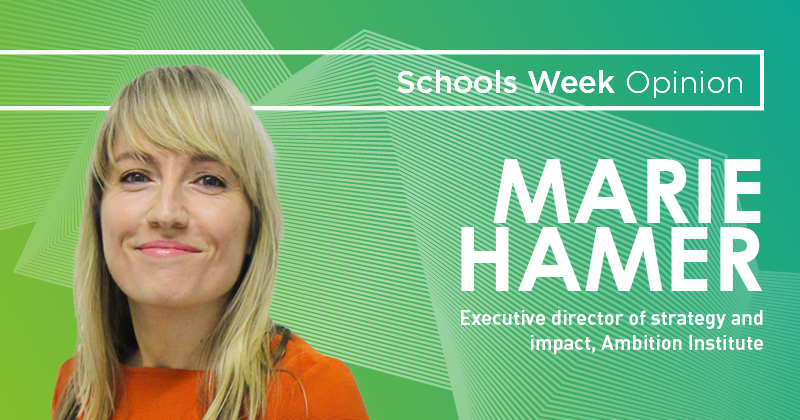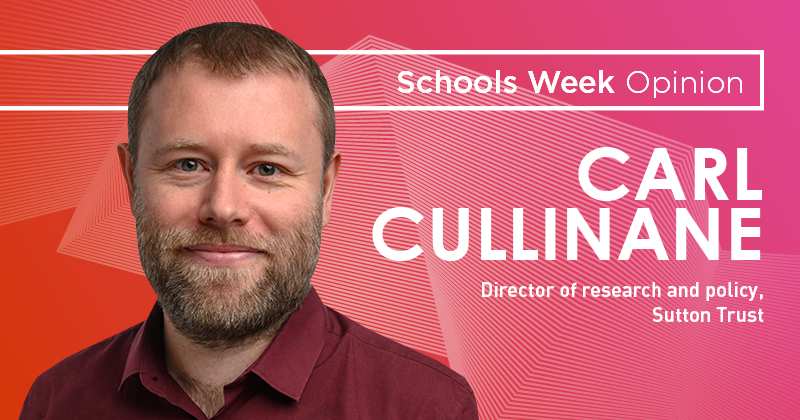With the spending review approaching, school leaders are watching expectantly to see what will be prioritised and protected.
We all know that funding is tight. The fiscal climate has changed significantly since Labour costed its manifesto 12 months ago; the government is now operating in a context where markets lurch like fairground rides, and pre-election pledges risk becoming collateral damage in an international trade war.
Meanwhile, however, schools need more direct funding to cover their growing costs, funding to address the rising needs for SEND support, for teacher pay rises… The list goes on.
No one doubts that the department for education will have to make some hard decisions, and it’s important that funds are directed to where they are needed most.
But among all this, the treasury must understand that the key to delivering the priorities the government is still holding to – whether that’s recruiting 6500 more expert teachers, improving early years provision or meeting more SEND support needs within mainstream – is to invest in the people who will deliver that change.
Investment in the expertise of all teachers and the wider education workforce is the best way to unleash a powerful cycle of improvement. The evidence is clear that the quality of teaching is the school-based factor with most influence over pupil outcomes.
We also know that effective teaching disproportionately benefits pupils from disadvantaged backgrounds and those with special educational needs and disabilities. If we want high and rising standards, then investing in developing expert teachers is our best option.
Let’s take early years. The aim of closing the disadvantage gap early is spot-on, but getting more children to reach a “good level of development” by the end of reception isn’t a quick fix; it requires a dedicated approach to supporting children’s learning and development throughout the early years phase.
In effect, the pledge would more than double the Conservatives’ annual spend
If the government wants to hit their target, they will need sufficient well-trained staff to provide the extra support some children need.
Mainstream inclusion is another case in point. School leaders can’t deliver on this without teachers who are trained in special educational needs and inclusive teaching. Leaders themselves will need support in how to implement whole-school strategies and staffing models that support this aim.
At this point it’s worth recalling one of Labour’s manifesto promises: the pledge for £270 million extra per year for “increased teacher and headteacher training”.
It can be tricky to get a sense of how much difference that additional investment could make, as there’s no historic published overall spend on teacher professional development. Usefully, some recent research we’ve undertaken with Loic Menzies and IPPR (due to be published later this month) has helped surface an estimate for that figure.
According to our calculations, close to a billion pounds was spent on professional development during the last parliament, or about £217 million per year.
This figure comes from totalling all the contracts issued by DfE that have teacher training or professional development as their main focus, the funding for time off-timetable for early-career teachers and mentors, and spend on teaching school hubs.
This reveals the scale of Labour’s ambition for investing in the school workforce. In effect, their pledge of £270 million a year more would more than double the Conservatives’ annual spend on teacher professional development.
Clearly, like many pre-election promises, this now seems less likely to materialise in its fullest form. But given the importance of supporting teachers and leaders with the challenges they face, it should certainly not be an area that the treasury pressurises DfE to cut.
Labour had the right aim when it announced the Teacher Training Entitlement. Investing in teachers is the most cost-effective way to improve outcomes for pupils, so it’s a must for a government whose stated ambition is for high and rising standards for every child.
To build on the incredible gains we have made in the past decade in the quality of education in English state schools, we have to continue to prioritise system expertise. Our workforce is our most important resource and deserves nothing less.











